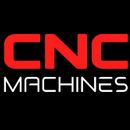Crucial Role of Intellectual Property Protection in Manufacturing

The Critical Importance of Intellectual Property Protection in Manufacturing
In today's competitive manufacturing landscape, safeguarding intellectual property (IP) is paramount. IP encompasses creations of the mind, such as inventions, designs, and brand identifiers, which are vital assets for manufacturers. Protecting these assets ensures that businesses can capitalize on their innovations without the threat of misappropriation.
🔍 Understanding Intellectual Property in Manufacturing
Intellectual property in manufacturing includes:
- Patents: Protect inventions and processes.
- Trademarks: Safeguard brand names and logos.
- Trade Secrets: Cover confidential business information.
These protections are essential for maintaining a company's unique position in the market and fostering innovation.
✅ Benefits of IP Protection
1. Safeguarding Innovations
IP protection ensures that proprietary technologies and processes remain exclusive, preventing competitors from copying or exploiting them.
2. Enhancing Competitive Advantage
By securing IP rights, manufacturers can establish barriers to entry, maintaining a unique market position and deterring potential infringers.
3. Facilitating Business Growth
Protected IP can be monetized through licensing agreements, creating additional revenue streams and attracting investment opportunities.
⚠️ Risks of Inadequate IP Protection
Failing to protect IP can lead to:
- Loss of Competitive Edge: Competitors may replicate products or processes, eroding market share.
- Revenue Decline: Unauthorized use of IP can result in financial losses.
- Legal Challenges: Without proper protection, enforcing rights against infringers becomes difficult.
🛠️ Strategies for Protecting IP in Manufacturing
1. Legal Safeguards
- Register Patents and Trademarks: Secure legal recognition of inventions and brand identifiers.
- Implement Non-Disclosure Agreements (NDAs): Ensure confidentiality with employees and partners.
2. Operational Measures
- Access Control: Limit information access to authorized personnel.
- Regular Audits: Monitor for potential IP breaches and enforce compliance.
3. International Considerations
- Understand Global IP Laws: Recognize that IP protections vary by country and take steps to secure rights in all operating regions.
🌐 Real-World Implications
High-profile cases have highlighted the consequences of inadequate IP protection. For instance, concerns over IP infringement in international manufacturing partnerships underscore the need for robust protective measures.
📈 Conclusion
Intellectual property protection is not just a legal formality but a strategic necessity in manufacturing. By proactively securing IP rights, manufacturers can safeguard their innovations, maintain a competitive edge, and ensure long-term business success.


